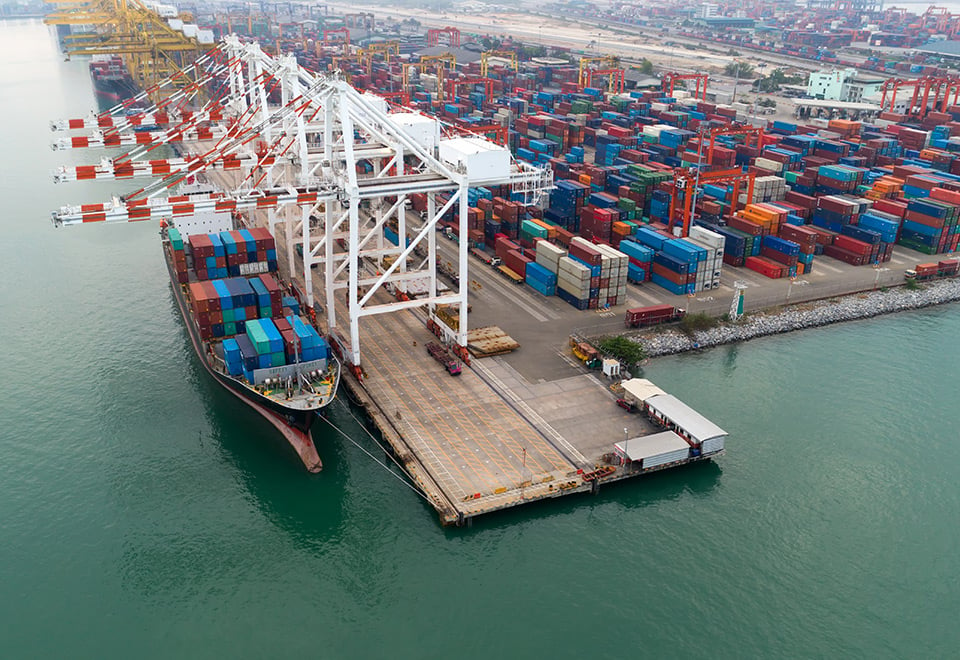Are you sure?
Are you sure? If you change your country now, any items you have added to your quote will disappear.
Your location
Please set your location to see relevant stock levels. Freight costs and taxes will be calculated once you log in.
Note: changing your location will empty your cart.
Global sea freight impacts
February 15, 2021
The impacts of coronavirus have been wide-ranging and significant. As has been well publicised, global demand for sea freight is at an all-time high, affecting the rates and space forecasting for importing and exporting.
Global lockdowns during 2020 severely impacted consumption and production of goods, resulting in challenges in forecasting demand.
Preparing for shipping volumes to drop, carriers reduced services with blank sailings (cancelled voyages), route mergers and closures.
However, as COVID-19 related restrictions eased, demand began to rise which prompted carriers to resume suspended services.
But the increased demand amongst a volatile market has seen the cost of containers for freight skyrocket. This cost has been climbing since April of 2020.
Location specific issues like container imbalances, port congestion, and industrial action are paired with global instability of supply and demand - ultimately resulting in the cost of sea freight rising to a historic high.

Container costs are well outside of usual market fluctuation.

Global Impacts
- Increased vessel operating costs associated with insurance premiums to cover COVID related expenses
- Container imbalances (stored containers in some locations and inability to access containers in others)
- Supply chains adopting near-shoring or reshoring strategies, impacting demand and cost of containers
- Seasonal pressure of Christmas and Chinese New Year
- Shipping alliances between freight providers giving providers power
Asia
- Ongoing shortages in availability of containers due to an imbalance of exports and imports
- Inability to access 40ft containers, instead 20ft containers are being used, impacting volume of product moved. Container manufacturers also working at full capacity and unable to keep up with demand
Australia
- Industrial action compounding issues in demand, especially in Sydney where delays of up to 18 days are being experienced. Some shipping lines now cancelling or diverting services into Sydney
- Border restrictions preventing crews from accessing ports and not allowing for usual crew change over
Europe
- Variance in impacts of lockdowns across European countries affecting access to ports
- Brexit increasing volatility of freight cost and demand


Looking ahead
Significant demand on sea freight is having a direct correlation on growing inflationary pressure on raw material costs.
Raw material suppliers are not exempt from current historical sea freight demand. Not only is the cost of securing raw material impacted, but delays are having a snowballing impact on product manufacture and finished good supply time.
Detpak has been absorbing abnormally high sea freight costs of both finished goods and raw material.
We continue to investigate opportunities to localise raw material sourcing or product manufacture to assist our customers. And we work alongside our freight providers to provide supply at the lowest possible cost.
For more information, Contact Us.
Or, back to Latest News.
References
https://www.mondiale.co.nz/news/
https://www.drewry.co.uk/supply-chain-advisors/supply-chain-expertise/world-container-index-assessed-by-drewry
https://www.ttnews.com/articles/global-trade-recovering-amid-pandemic
https://www.dhl.com/content/dam/dhl/global/dhl-global-forwarding/documents/pdf/glo-dgf-ocean-market-update.pdf
https://theloadstar.com/covid-19-could-shrink-europes-road-freight-market-by-20-this-year/
https://www.logisticsbureau.com/2020-trends-in-freight-transportation-and-the-covid-19-impact/

